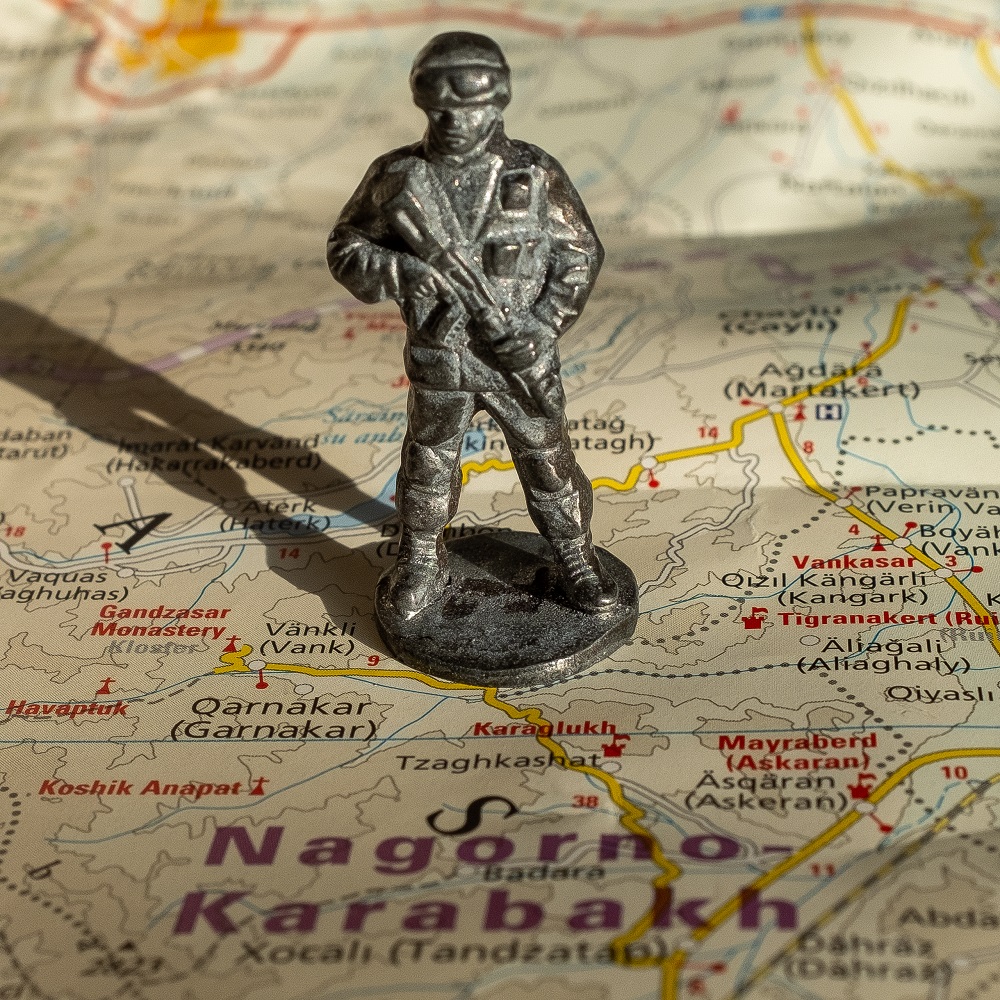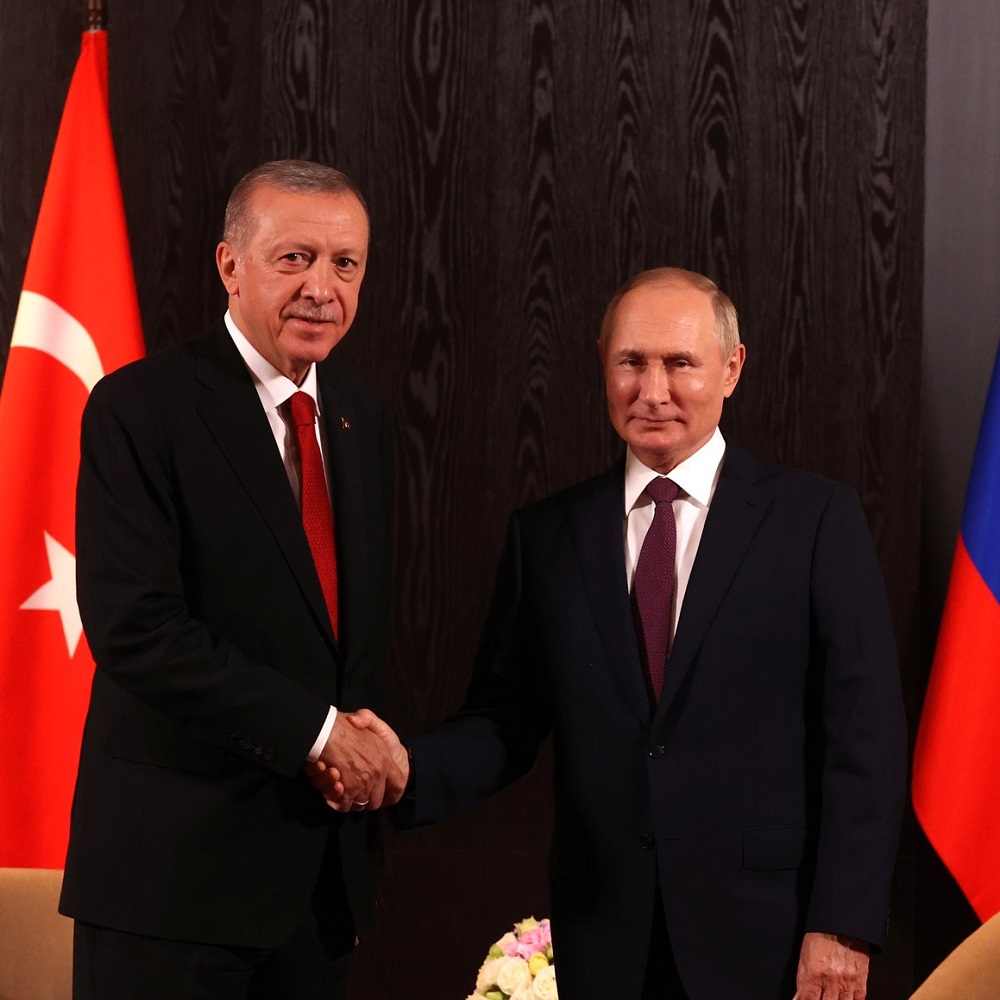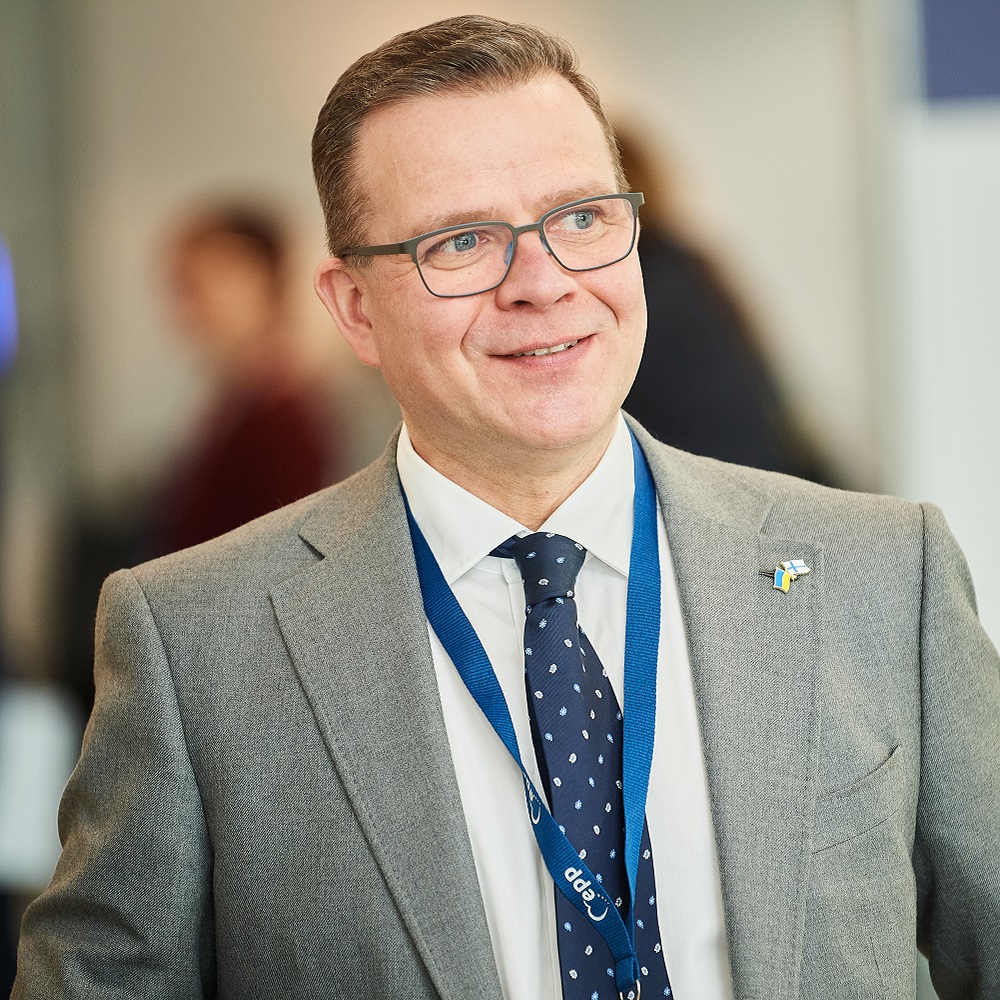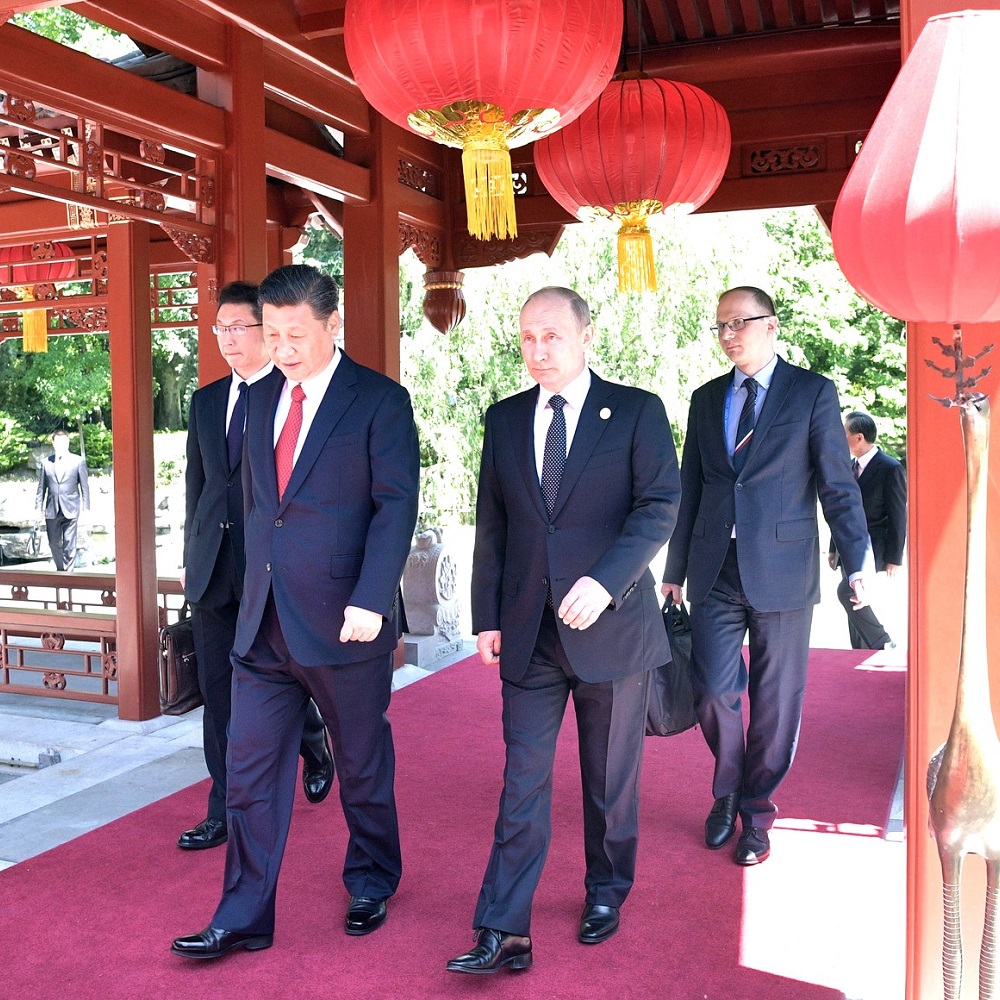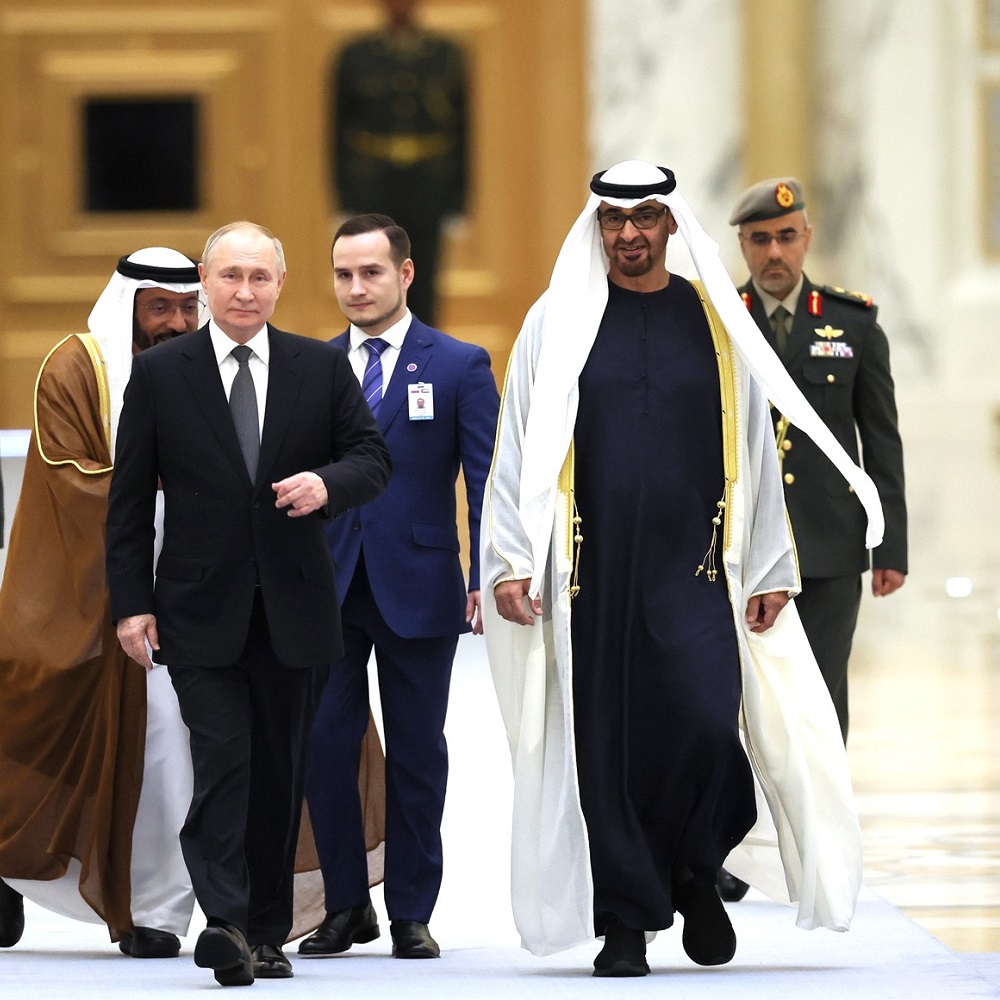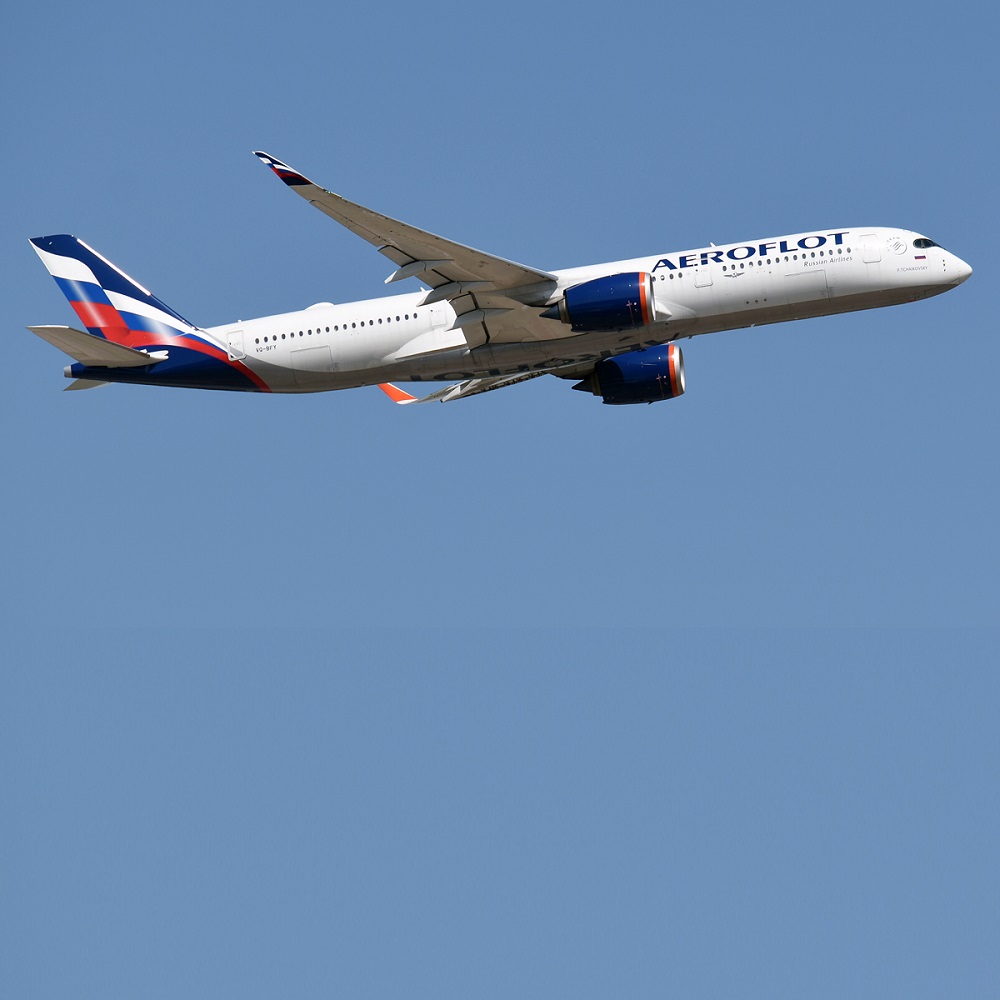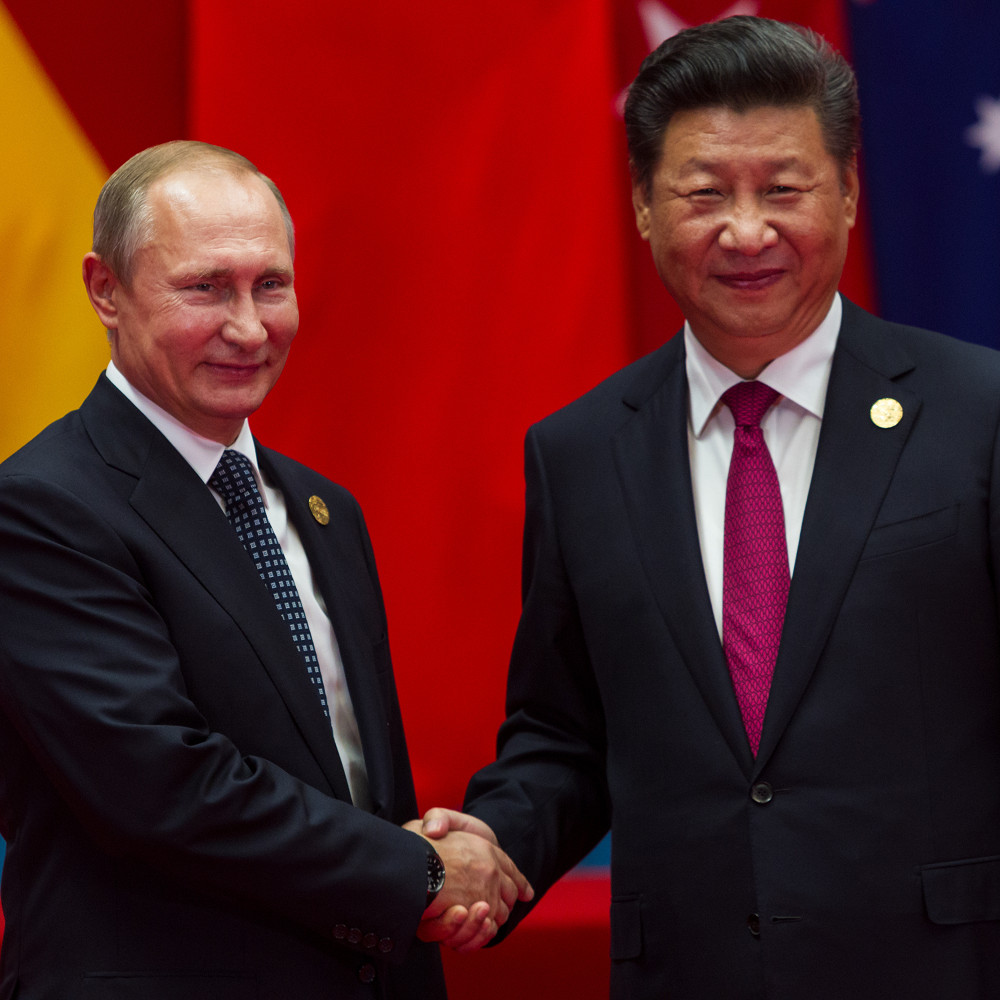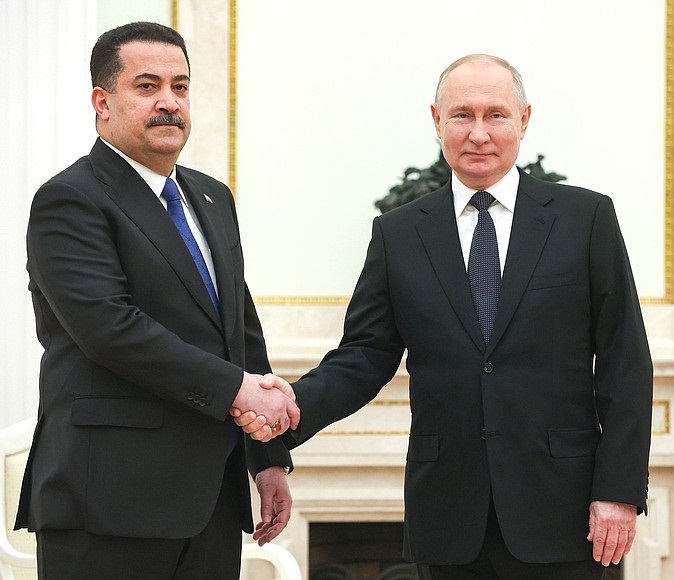
Russia-Iraq talks
by Vladimir Putin , Mohammed Chia al-Soudani
Vladimir Putin met with Prime Minister of the Republic of Iraq Muhammed Shia Al-Sudani, currently on an official visit to Russia. The beginning of Russia-Iraq talks President of Russia Vladimir Putin: Mr Prime Minister, colleagues, friends, Welcome to Russia and Moscow. Mr Prime Minister, We are delighted to see you. Relations between our countries are developing rather successfully. Next year, we will mark the 80th anniversary of diplomatic relations. In previous decades, our country accomplished very much in building relations with Iraq, and in the most diverse fields – first and foremost in the economic sphere. An intergovernmental commission is working on this today. In 2022, our trade soared by 43 percent but, unfortunately, dropped this year. We have a lot to discuss. In this sense, of course, your visit is quite timely. The energy sector is certainly the main aspect of our collaboration. Our largest companies operate rather successfully in your country. Our companies have invested a total of about $19 billion, and our collaboration, already quite effective in this area, is only going to expand. We coordinate our work within the OPEC + format, and we are doing this rather successfully in order to stabilise the situation on global markets. On the whole, we are enjoying much success, and I hope that we will continue working in this manner moving forward. We have many bilateral objectives, and we will focus our attention on all of them. Tomorrow, we will take part in a plenary meeting of the Russian Energy Week. This is a valuable and respectable international event in the field of global energy, during which specialists and experts can convene and discuss current developments, as well as shorter-term and remote prospects. Of course, your visit to Russia is taking place amid crises: the Ukrainian crisis continues, and, unfortunately, we are witnessing a sharp deterioration of the situation in the Middle East. I think that many will agree with me that this is a clear example of the United States’ failed policy in the Middle East, which tried to monopolise the settlement process, but, unfortunately, was not concerned with finding compromises acceptable to both sides, but, on the contrary, put forward its own ideas about how this should be done and put pressure on both sides, truly both: first on one, then on the other. But each time without considering the fundamental interests of the Palestinian people, bearing in mind, first of all, the need to implement the decision of the UN Security Council on the creation of an independent, sovereign Palestinian state. But in any case, no matter what happens there… I know your position, Mr Prime Minister, and our position is that harm to the civilian population should be minimised and reduced to zero, and we call on all sides of the conflict to do so. We will certainly talk about this, as well as other problems, during your visit today. After the expanded meeting, we are also planning a face-to-face conversation during a private lunch. There will be an opportunity to discuss everything in detail. Welcome again, Mr Prime Minister. Prime Minister of the Republic of Iraq Muhammed Shia Al-Sudani (retranslated): Thank you very much, Mr President. Greetings to the members of the delegations. Thank you very much for the invitation to visit Russia. Russia is a friendly country we have deep and historic ties with. I would like to once again express Iraq’s gratitude to Russia for its support in the fight against terrorism, the war against terrorism, for providing us with weapons so that we could resist armed terrorist gangs. Without a doubt, this episode in the relationship is very valuable; 2014 was of great importance for relations between our countries. With our visit, we want to strengthen interaction and develop relations that have excellent prospects in the political, security, cultural and economic spheres. We have many different opportunities before us. We have a good foundation; there are Russian companies that operate, for example, in the oil and gas sector. Our countries play an important role on the oil market, and therefore it is important for us to continue bilateral coordination and cooperation within the OPEC+ format. This coordination should be based on consideration of supply and demand mechanisms, and the interests of investors, producers and consumers. We will, of course, touch on and discuss these issues during today’s meeting. And tomorrow we will also have a good opportunity to discuss these issues, as well as energy issues, which, of course, are the focus of many, including the Iraqi government. Our visit is taking place at a time when we can see the implementation of a large development project that will ensure trade between Asia and Europe and contribute to the integration of transport corridors, I mean the North – South Transport Corridor first of all. This will support all countries in the region and the entire world and have a positive effect on them. Now, developments in Palestine have taken a complicated and dangerous turn. This is the natural result of the fact that Israel has continued to violate the rights of Palestinians, while the international community has remained silent and failed to live up to its obligations under internationally recognised resolutions. We are now witnessing another Intifada: an uprising of Palestinians demanding to put an end to such violations of their rights. An obvious escalation, and a very dangerous one, with civilians killed as a result and spontaneous bombings carried out, including against civilian targets: all this may result in the destruction of the Gaza Strip. Now we all, as Arab and Islamic countries, and also together with Russia, a permanent member of the [UN] Security Council, a great power, have a responsibility here. This is a moral responsibility, including on major powers, to stop these violations of the rights of Palestinians and to end the blockade of the Gaza Strip. Of course, today Iraq is trying to maintain stability in all regions through its policies, including with regard to the Ukrainian crisis. We have suffered greatly from blockades and war; of course, that is why our position is firm: we support the search for peaceful solutions through dialogue to end conflicts that have very negative consequences at the humanitarian level and at the economic level. Obviously, the purpose of this visit is discussing these issues and our common positions as well as strengthening our bilateral relations. We also want to contribute to relieving the suffering in the region and ensuring stability in the Middle East and the entire world. Thank you. Vladimir Putin: Thank you. <…>









